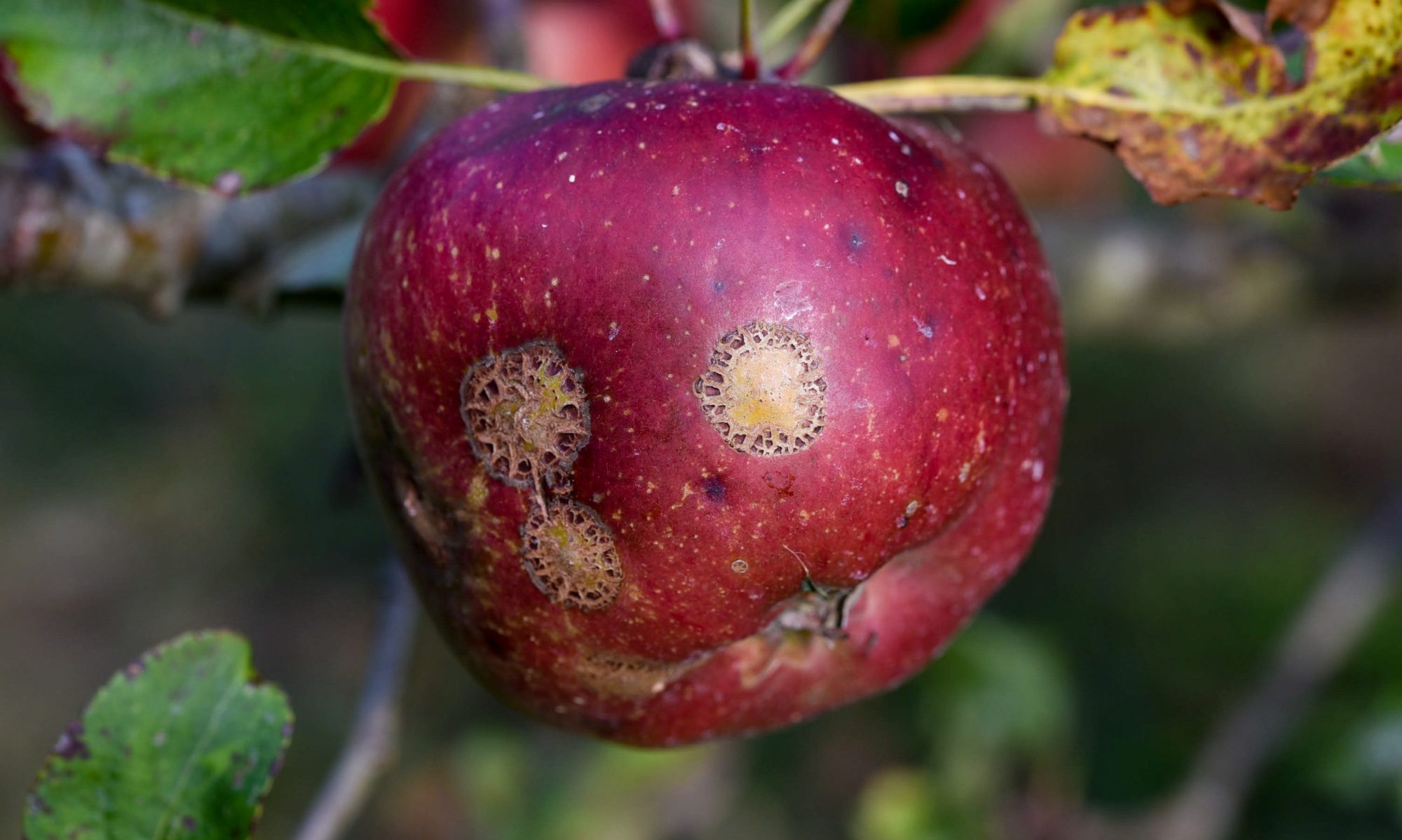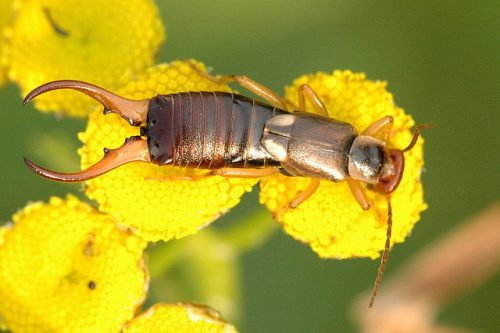Earwig, crawling insect susceptible to desiccation. Earwigs are omnivores: plants, animals and dead (plant) material.
Earwig – omnivorous insect; the common earwig (Forficula auricularia) is native to Europe. Earwigs (Forficulidae) belong to the earwig family (Dermaptera) and are active at night.
Earwigs hide in flowers, behind loose tree bark and under leaves. They like a moist environment because they dry out quickly. Earwigs are omnivores: plants, animals and dead (plant) material.
Peppers sometimes suffer from earwigs: they hide in the hollow fruits. Earwigs also like to hide between the scales of the artichoke and in the flowers of the dahlia.
Birds, frogs, mice, parasitoid wasps and spiders are the natural enemies of the earwig. They especially like to eat magpies, jays, great tits and starlings.
Sometimes earwigs are welcome because they combat spider moths, for example.
Control
When touched, they drop to the ground. If you suspect lots of earwigs (peppers, artichokes), tap the plant and they will fall out.
Prevention
Earwigs have many enemies, including birds (great tit), parasitoid wasps and spiders. If earwigs are a pest, creating a bird-friendly environment helps.

